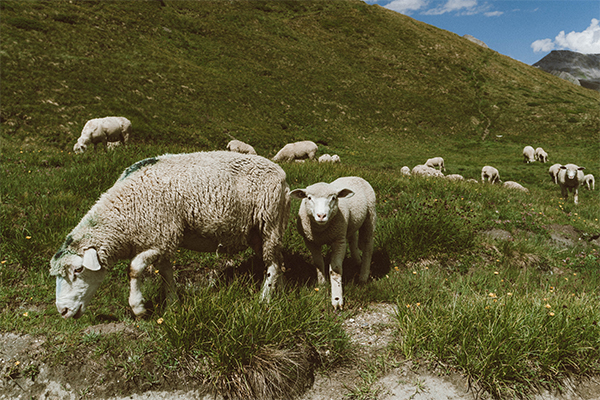
Did you know that the process of sheep giving birth is called lambing? Did you know that sheep have rectangular pupils? Did you know there are over 1000 breeds of sheep? Did you know sheep have excellent memory, and they can recognize up to 50 other faces—sheep faces, that is. Did you know sheep do not have teeth in their upper front jaw? Did you know all these things because you grew up on a farm? Have you sheared sheep before, cared for sheep, watched sheep, counted sheep? I sense not many of us have been around sheep very much, but sheep were around the lives of people in the days of the Bible as dogs or cats are to us today.
There are many stories in the Bible that mention sheep. There were also many characters in the Old Testament who were once shepherds. Arguably, the most famous shepherd we know in the OT was David. But certainly he wasn’t the only one. Abel, Abraham, Jacob, Moses, all of Joseph’s sons, Amos, and, for a time at least, Zechariah, were all shepherds. Then in the New Testament, God chose to announce the Christ’s birth to shepherds near Bethlehem before anyone else. All to say, shepherds were familiar to virtually everyone in the days of the Bible, and there were many shepherds.
Without question, the most important shepherd is Jesus. In the Gospel of John, he says he is the Good Shepherd. But as far as we know, Jesus was a carpenter, son also of a carpenter, and never a shepherd. So why would he say he is the Good Shepherd? Was he merely trying to use a figure of speech that everyone understood in the 1st century? Or was it for another reason? More importantly, why did he say he is the Good Shepherd? What is it he wants us to know when he declared he is the Good Shepherd? Because Jesus is the Good Shepherd, how is that supposed to change us? Come this Sunday, and let’s think together, and see if you and I can answer these questions together. See you Sunday!
Your friend,
ALVIN